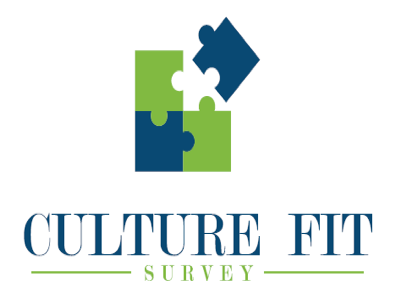

The Problem Talent Sequencing Discovered:
Companies & clients continue to hire great resumes, but not great fits.
The Answer Talent Sequencing Developed: The Culture Fit Survey
A culture assessment tool to measure culture/climate for both a company as well as a candidate being considered for hire. The research-accepted best proxy for culture definition—what behaviors does a company reward, punish, and tolerate.
April 2019, Capital RoundTable “Best Practices for Creating Value in PE Portfolio Companies: “For ADD-ON acquisitions, it’s really important to assess the culture of platform company, and add-on acquisition to ensure compatibility. Without this pre-assessment, synergies expected often fail to materialize or worse, the add-on completely fails to be accretive.”
Measuring culture in an organization is notoriously hard. Why? Because there are often as many definitions of “culture” as there are academics, pundits, and CEOs. So, with so many permutations, how does one go about picking the definition that’s “right for your purpose”?
In our case, the purpose of defining a company culture is all about fit. The word “fit” is such a simple-looking and sounding word—3 letters, one syllable—how hard could it be? Well, it turns out that determining a potential employee’s “fit” with an existing organization is devilishly difficult. Why? Because it’s multifactorial. And because of this, at Talent Sequencing we like to try to shift our specific intent away from the world “culture” because of the noise and pollution around it that makes it very difficult for all to share a unified definition. So we’ve moved our working word to “climate” instead of culture. So—now armed with a clean word to define our aim, we can move forward with the “why & how” we approach the company-candidate climate fit.
How Does the Culture Fit Survey Accurately Determine Company-Candidate Climate Fit?
Our Definition of Climate? The proven, research-accepted best proxy for this task is to ask the question, “What behaviors do we in our company reward, punish, and tolerate?”
The How: Here at Talent Sequencing, we’ve built a tool that does just that, and we’ve named the Culture Fit Survey—it asks each participant which behaviors are lauded, penalized, and ignored. There are several pieces to this climate survey*:
- The initial survey is given to a sample set of a company’s employees. Usually as few as 5-10 will suffice.
- The survey will ask what the current climate is, using a series of questions.
As an option, the survey can also ask all participants to define a preferred, and aspirational “better climate they would like to see in the organization”—in other words—”what would you like the climate to be if not the current climate?” - Once a company’s baseline climate is determined, Talent Sequencing then asks each candidate:
- What climate they exist in now and juxtapose it against their performance.
- What climates have been the best fit for them across their career.
- Finally, a candidate’s CFS is overlaid on the company’s CFS to determine:
- Where compatibilities or incompatibilities may lie.
- And, fundamentally, a candidate’s interview and reference questions can be crafted from these results to explore the potential “fit” in multiple dimensions and more depth.
Meet the Culture Fit Survey
Request Information
FAQs
Minimum Number of Participants
A minimum of 5 internal company stakeholders need to participate to make the results representative, with a preference for up to 10, across the functional and leadership spectrum.
How long does it take each stakeholder to complete?
Less than 10 minutes (48 multiple choice questions)
Can you participate via computer OR mobile device?
Yes, the tool is optimized for both.
What is this cultural assessment tool based on in terms of peer reviewed research?
For the most part, London Business School Professor Charles Handy’s work (see https://en.wikipedia.org/wiki/Charles_Handy)
How much does it cost?
For more information and a scoping estimate, please reach out so we can customize a CFS tailored to your needs.
